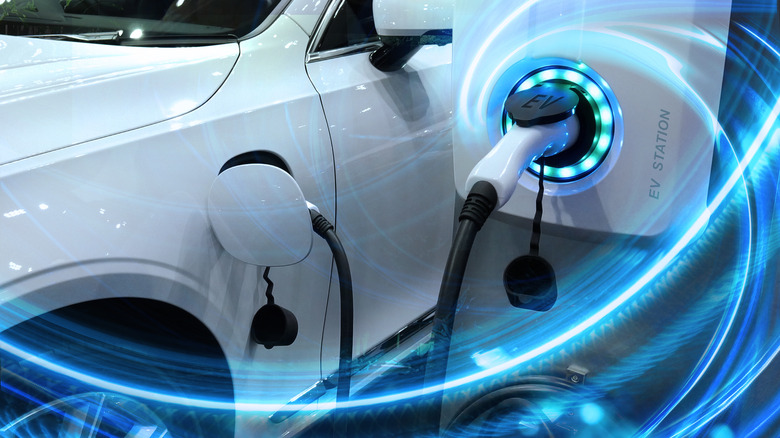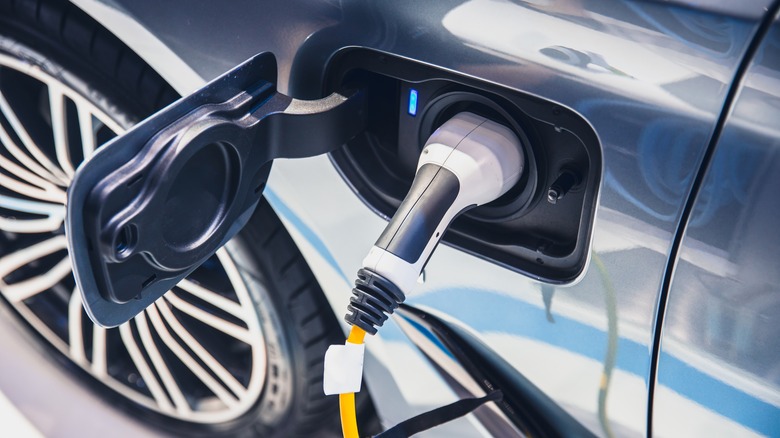Do EVs Last As Long As Gasoline Cars?
An electric vehicle provides an obvious upside: The cost to run the car is reduced as a result of cutting out gasoline purchases (and the calculation for when an EV becomes truly green puts it at just 19,000 miles). Consumers often grapple with the option to purchase cheap clothing, shoes, electronic devices, and more, weighed against more expensive purchases that may last long enough to justify a heightened price tag. The Conversation studied consumer habits as they relate to product lifespan knowledge and concluded that buyers, on average, will try to work out a quasi-cost per application themselves and gravitate toward products that last longer when this information is available.
This same calculation circulates through the automotive marketplace. Customers want to bring in the best purchasing power possible when shelling out a pile of cash. Questions over the expected length of performance remain a core component of a decision to purchase an EV or not.
Unfortunately, this question doesn't have a simple answer. In total anticipated road mileage, a traditional gasoline-powered vehicle will likely outperform an EV before requiring important part replacements, like new tires for instance, according to Forbes. However, there are many other factors that bring this conversation into focus. In the end, EVs actually perform very well when stacked up against the competition.
Maintenance is typically far less expensive on an EV
One of best things that electric vehicles have going for them is lower overall maintenance cost, according to Pod Point. Routine maintenance is essential to keeping an EV on the road of course, along with brakes, tires, lights, and windshield amenities requiring standard care. The innerworkings of the electric motor itself make use of far fewer complex components. This amounts to a far easier maintenance schedule throughout the years of ownership that lie ahead for a new EV purchaser (via Pod Point).
As well, it's important to note that electric cars, while needing less maintenance and suffering less internal component wear and tear, can demand a higher bill for fixes after minor fender benders. The nature of electric cars and their place within the overall transportation marketplace create a generally slimmer supply of parts and fixtures, as well as labor specifically trained in EV maintenance, potentially raising the price of a cosmetic or essential repair that will get the vehicle back in functional, safe order. This is a pronounced issue particularly in battery components, for instance (via Supply Chain Drive).
However, in the typical day-to-day operation of an EV, a car owner will face far less total financial cost, making the calculation of effective lifespan somewhat of a convoluted issue that relies more on a driver's unique needs, preferences, and priorities rather than hard math associated with generalized consumer spending habits.
Total road miles may be on par in some models with gasoline engines
Aco Drive notes that the battery pack is the most expensive component in an electric vehicle, shifting viable road mileage away from statistics surrounding only engine health and performance.
A typical vehicle, which makes use of an internal combustion engine in a traditional car model, will often perform at a functional level for up to around 200,000 miles. According to The Zebra, the U.S. average mileage per year sits at 14,263. This means that a standard vehicle that's provided with routine maintenance and cared for and enjoys a bit of luck and isn't crashed into will remain a viable transportation option for its owner for just over 14 years.
In contrast, an electric vehicle's distance rating works a little differently. The battery, not the engine is indicative of lifespan.
MyEV reports that many modern batteries in electric vehicles can easily match this same 200,000 mile range, but also notes that total battery capacity degrades over time, making a full charge less effective the longer the unit is used (in contrast to the volumetric tank that a traditional engine relies on for power).
It's important to keep in mind though, that even as an EVs battery begins to degrade, it likely remains under warranty and a failure or substantial drop off in performance may be covered completely by the manufacturer — a warrantee-covered replacement may in fact double the lifetime range of the vehicle!


